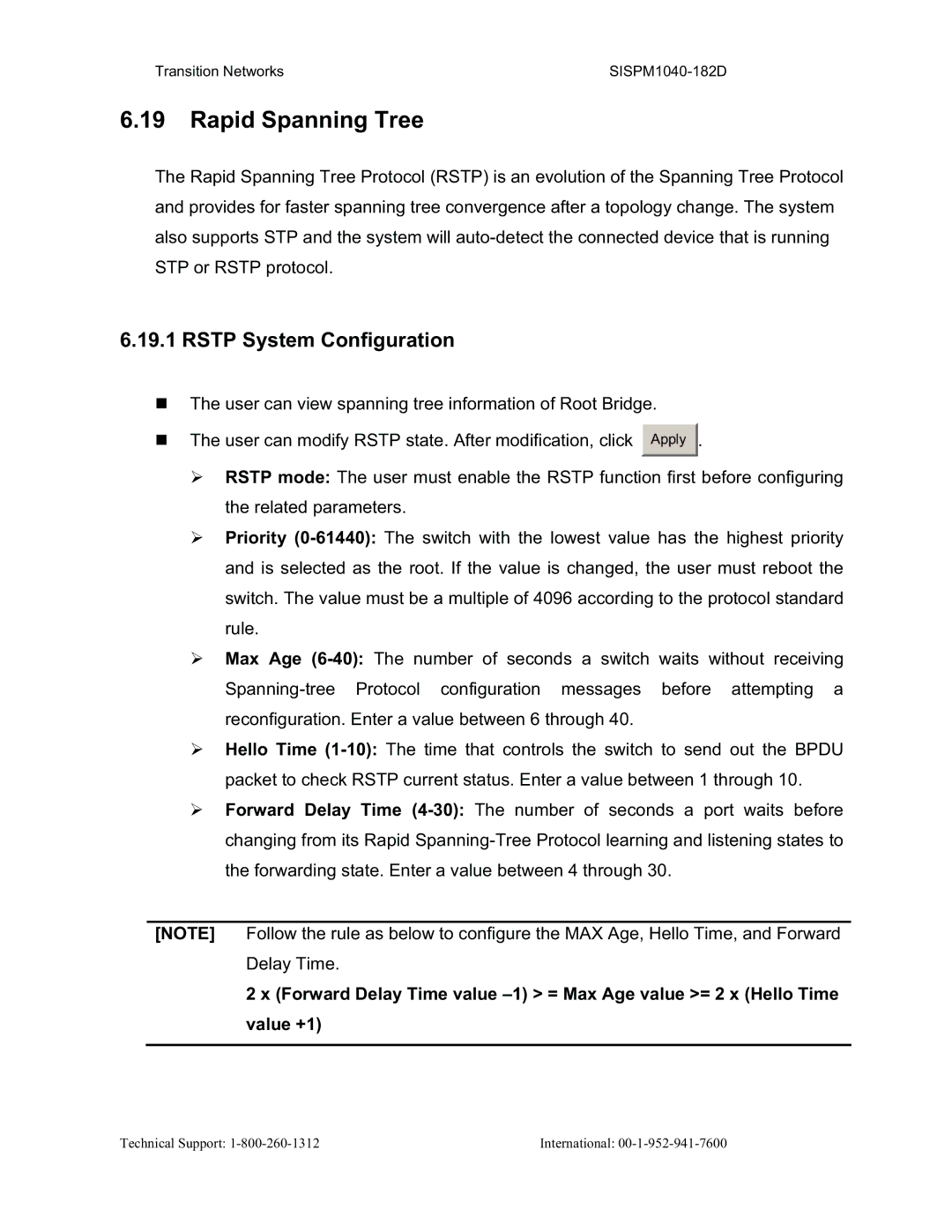
Transition Networks |
6.19Rapid Spanning Tree
The Rapid Spanning Tree Protocol (RSTP) is an evolution of the Spanning Tree Protocol and provides for faster spanning tree convergence after a topology change. The system also supports STP and the system will
6.19.1 RSTP System Configuration
The user can view spanning tree information of Root Bridge.
The user can modify RSTP state. After modification, click Apply ![]() .
.
¾RSTP mode: The user must enable the RSTP function first before configuring the related parameters.
¾Priority
¾Max Age
¾Hello Time
¾Forward Delay Time
[NOTE] Follow the rule as below to configure the MAX Age, Hello Time, and Forward Delay Time.
2 x (Forward Delay Time value
value +1)
Technical Support: | International: |
